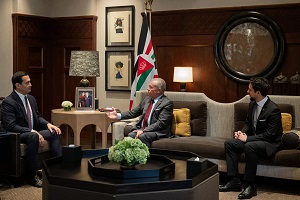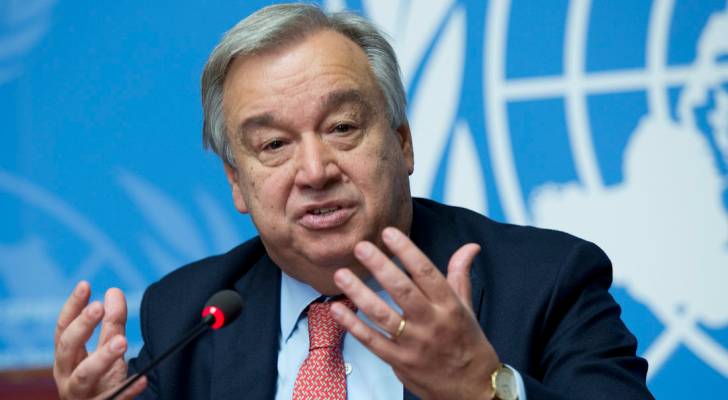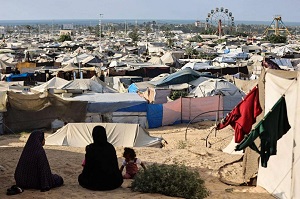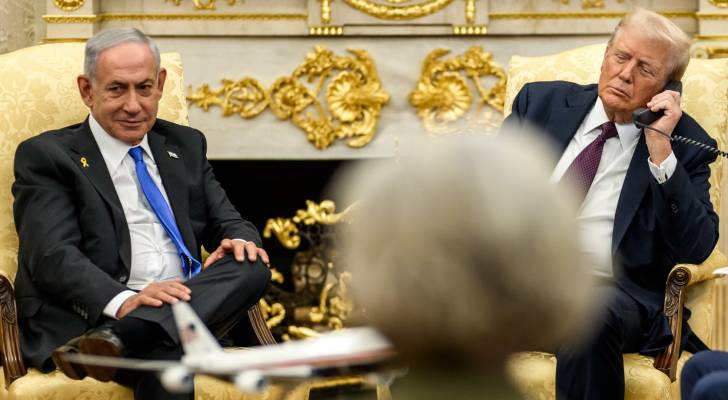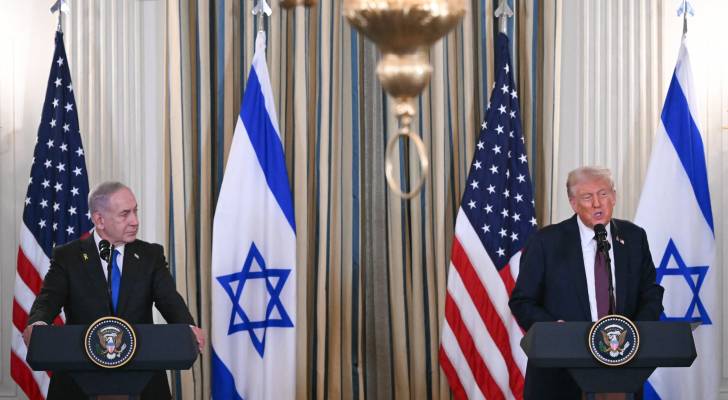King Abdullah’s role in recognising Palestine - By Hasan Dajah, The Jordan Times
Since his accession to the throne in 1999, His Majesty King Abdullah has prioritised the Palestinian cause in his political and diplomatic discourse, placing it at the forefront of his regional and international efforts. He believed that achieving a just and comprehensive peace in the region could only be achieved through recognizing the right of the Palestinian people to establish their independent state on the June 4, 1967, borders, with East Jerusalem as its capital. This vision was not merely slogans; it took an escalating path through international conferences, official speeches, and political initiatives that exerted sustained pressure on the international community until the world finally recognised the Palestinian state.
At the beginning of the new millennium, with the outbreak of the Second Intifada, the King played an active role in international forums warning of the dangers of the continued occupation and settlement policies to regional stability. In 2002, when the Arabs presented the "Arab Peace Initiative" at the Beirut Summit, Jordan, under the leadership of King Abdullah, played a role in mobilizing support for this initiative, which constituted a strategic framework linking recognition of Israel to the establishment of a Palestinian state and its withdrawal from the occupied territories. Since then, the King has invested his entire international presence in reminding him that this initiative remains a just basis for a settlement.
In 2007, during the Annapolis Conference, convened by the United States, the King delivered a speech in which he emphasised that the time had come to end procrastination and grant the Palestinians their legitimate right to statehood, asserting that the world could no longer tolerate further conflict. His speech clearly emphasised that the alternative to a two-state solution was a new cycle of violence that threatened global security. This direct language characterised King Abdullah's approaches at every opportunity, as he addressed international leaders with balanced yet forthright political logic.
With the advent of the second decade of the millennium, the King intensified his diplomatic activity. In 2010, before the UN General Assembly, he issued a clear warning that wasting opportunities for peace would make the two-state solution impossible and that the world would find itself facing a reality of apartheid. In 2013, when Palestinian-Israeli negotiations were relaunched under US auspices, the King was at the forefront of efforts to secure Arab support for the Palestinian negotiator, emphasizing that Jordan would not accept any solutions that violated the rights of the Palestinian people or threatened the historical and legal status of Jerusalem.
The years that followed were marked by more strident movements. In 2017, with the US administration's decision to move its embassy to Jerusalem, King Abdullah's voice was among the most prominent international voices opposing it, warning that this move would undermine the peace process. His speech at the extraordinary Islamic Summit in Istanbul that year was pivotal, calling for a unified Islamic and international position to protect Jerusalem and support the Palestinians in their quest for statehood.
He reaffirmed that the Hashemite custodianship of the Islamic and Christian holy sites in Jerusalem was not only a historical obligation, but also a political and religious responsibility in the face of Judaisation attempts. In 2018, during a speech before the European Parliament, King Abdullah boldly argued that recognizing a Palestinian state is not just a political choice, but a moral and legal necessity, calling on Europe to shoulder its responsibility to uphold justice. As waves of Arab-Israeli normalisation increased in 2020, the King remained steadfast in his position that no true peace will be achieved without the establishment of a Palestinian state. These positions re-emphasised the centrality of the Palestinian cause in Jordanian discourse and reminded the world that violating Palestinian rights will not bring security.
In the third decade of the century, as the political stalemate continued, King Abdullah's international engagement intensified. In 2021, during UN meetings, the King reiterated his call for practical recognition of a Palestinian state as the only way to end the conflict and ensure security and stability in the region, warning that the alternatives would lead to more violence and extremism. In September 2023, before the United Nations General Assembly, King Abdullah II clearly emphasised that there would be no security or stability in the Middle East without a just solution to the Palestinian issue based on the two-state solution, emphasizing that ignoring this right would keep the region mired in cycles of conflict and tension.
Until 2025, several European countries began officially recognizing the State of Palestine. This coincided with a political and diplomatic momentum that King Abdullah had helped consolidate over the years. This shift was the culmination of tireless Jordanian efforts in coordination with Arab and friendly countries, resulting in the number of countries recognizing Palestine exceeding 150, a development clearly evident in the meetings of the United Nations General Assembly.
The King's presence at Arab summits, UN forums, and speeches before global parliaments were cumulative pressures that reshaped the international position on Palestine. In September 2023, in his address to the General Assembly, he emphasised that security and stability in the region would not be achieved without a two-state solution, warning of the danger of ignoring this right. Under the leadership of King Abdullah, Jordan continues its efforts with greater momentum, seeking to translate broad international recognition into practical steps on the ground by supporting Palestinian institutions and pressuring them to end the occupation and halt settlement activity. Thus, recognition of the Palestinian state is the fruit of a long journey of Jordanian political action and a starting point for a new phase aimed at establishing Palestine as an active state in the international system.
Hasan Dajah is professor of Strategic Studies at Al-Hussein Bin Talal University
